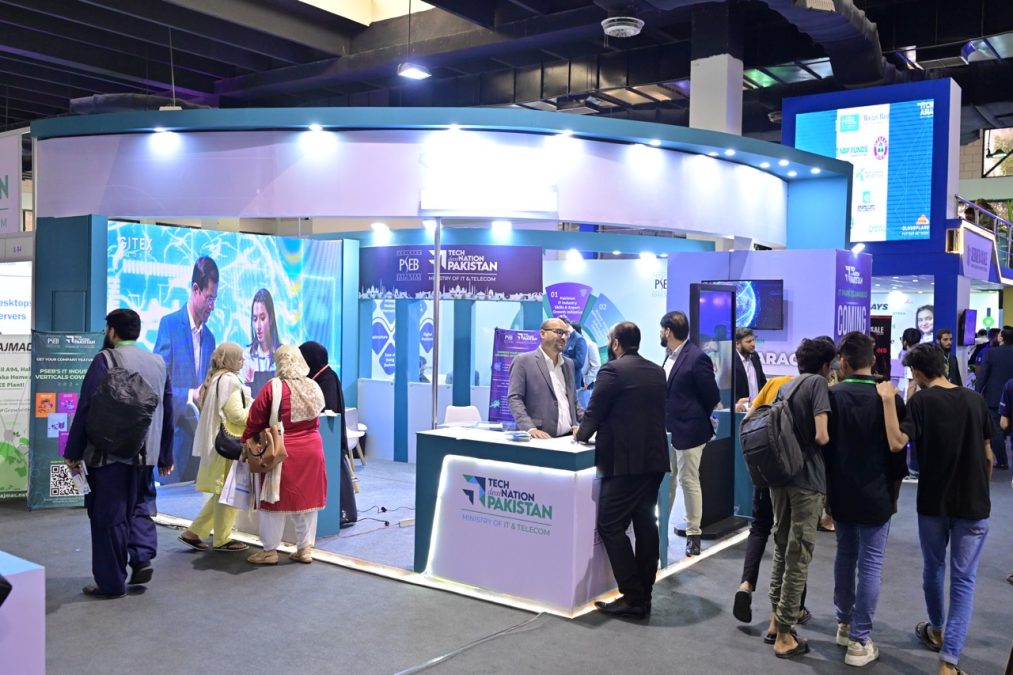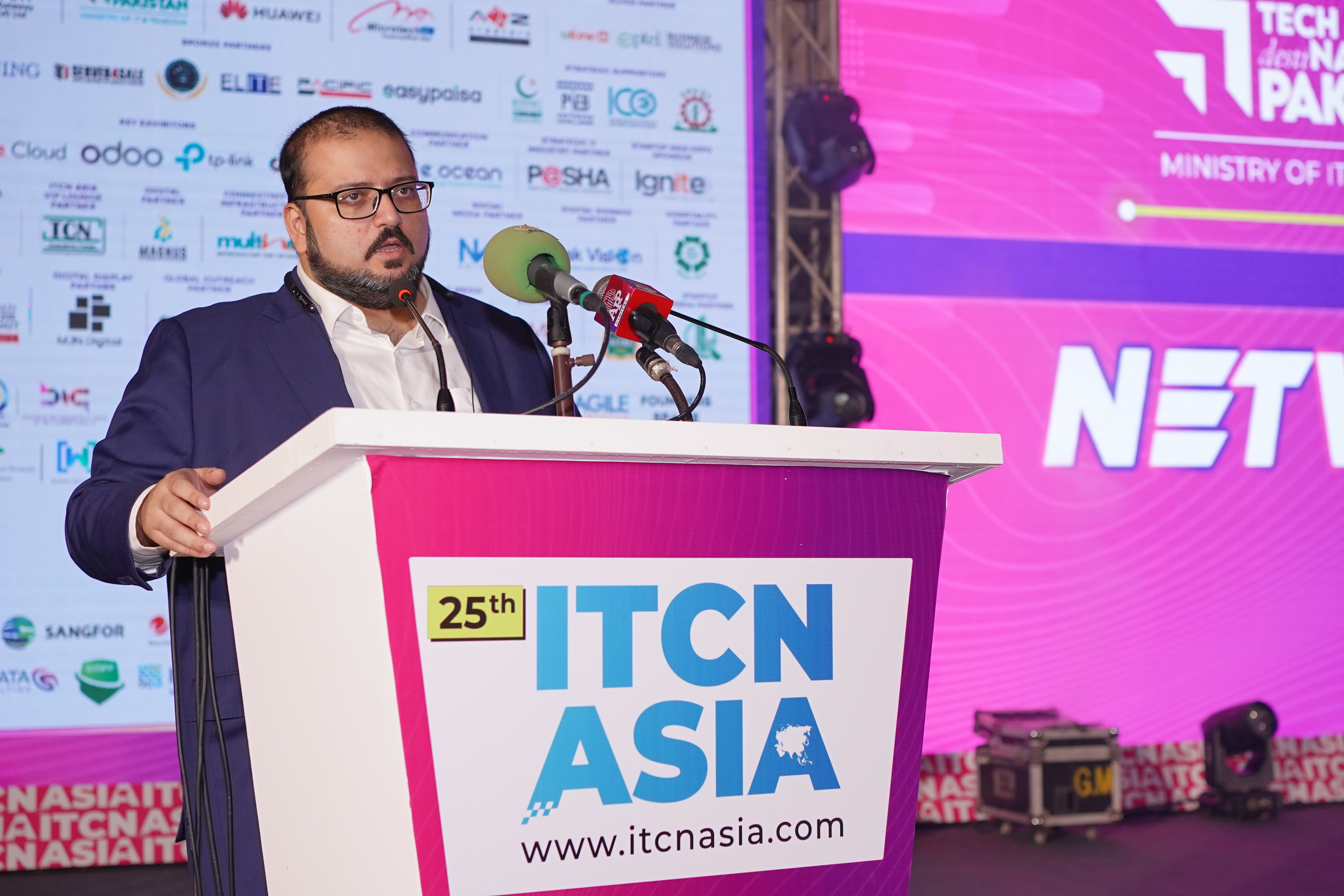Pakistan is opening its doors to a greater international collaboration by providing visa-free entry to nationals of the Gulf Cooperation Council (GCC), says Muhammad Umair Nizam, Project Director at Information Technology and Telecommunication Network (ITCN) Asia.
The initiative is set to bolster Pakistan’s connections with key Gulf countries. Pakistan recently hosted its 25th edition of ITCN Asia in Karachi, which saw robust participation from international delegates, including those from the GCC.
On the sidelines of the event, Nizam shared his views with TRENDS on Pakistan’s expanding role in regional tech development, the potential opportunities for Pakistani businesses in the GCC, and the role of events like ITCN.
What were the key milestones at ITCN Asia this year?
ITCN provides a platform for stakeholders to collaborate, bringing government and industry leaders together for roundtable discussions on critical issues facing the tech ecosystem, often overlooked in formal office meetings.
This year’s edition exceeded all expectations. Being the 25th edition, it was particularly special and surpassed previous records for attendance and participation. We had about 57,000 registered trade visitors and 750 participants, including companies from various countries. Notable presentations came from Singapore, the UAE, the Islamic Chamber of Commerce, and UniDo. Over 400 Pakistani companies were also present, promoting domestic products both locally and globally.
This significant increase in visitor numbers was accompanied by strong government support. Without government backing, events like this cannot grow to their full potential. The involvement of the Ministry of IT and Telecom and SIFC, as well as partnerships with organizations like the Islamic Chamber of Commerce, were instrumental. The Islamic Chamber’s secretary general attended and held a major tech conference, marking a milestone in fostering stronger relationships between Pakistan and Muslim countries.

Which key Pakistani products were showcased?
Pakistan’s software services industry stood out, with companies offering cybersecurity solutions, virtual reality for military and everyday use, social media management tools, and ERP systems. This year, participation was significantly higher, which indicates growth in the tech sector. We’re moving beyond reselling international brands and are now developing our software and services.
What were the challenges you faced in organizing this event?
Unfortunately, you know, we have our challenges in Pakistan, and I think it’s smart to accept and address them. Of course, Pakistan’s security situation and perception abroad can sometimes be very negative. But the reality is often different, and one of our biggest challenges is getting people to come, experience Pakistan, and see it for what it truly offers.
This year, we welcomed delegates from 18 countries and many of them were pleasantly surprised by what they experienced in Pakistan. Their perceptions changed, and they’re going back as ambassadors of our country. That’s one of our biggest achievements, overcoming the perception challenge and transforming it into a success story.
In a game-changing move, the Pakistani government has just announced that GCC nationals will be granted visa-free entry into Pakistan. They’ll only need a passport to enter. This will be implemented in the next few days, and we expect a significant increase in participation from the GCC region at our future events. This will open new doors for deeper cooperation and collaboration, especially for future editions of ITCN Asia.
How will 5G be a game-changer for Pakistan?
Although we’re behind in fast internet infrastructure, the government has prioritized 5G development. Trials have already begun, and by next year, we expect to roll out 5G across the country. This will unlock new opportunities for Pakistani companies to offer cutting-edge services both domestically and internationally.
How can the Pakistani public and private sectors collaborate further?
More frequent gatherings, like town halls and webinars, are essential to bridge the gap between the public and private sectors. Different sectors—software, IT services, hardware—have unique needs that require focused discussions with the government. Often, conversations about IT focus solely on exports, neglecting the domestic market, which is a significant area that needs attention.
The best way to connect the world with Pakistan is to bring international delegates here. With a young population, affordable services, and competitive pricing, Pakistan has a lot to offer. Our time zone, central to both Asia and the Middle East, allows us to serve regional markets efficiently. Companies like Huawei have already recognized this by shifting their delivery center to Pakistan.
Can you share some success stories of Pakistani IT companies in the GCC?
Pakistani companies are not just doing small-scale outsourcing but are providing services to Fortune 500 companies. Our affordability, skilled workforce, and strategic location make us an attractive IT hub for both Asia and the Middle East.
For instance, Inbox Business Technologies, a system integrator from Pakistan, has opened an office in Riyadh and is working with both the government and large private companies. Another success story is Systems Limited, which has established itself in Qatar, providing cloud services and collaborating with AWS and other companies. Their presence in the Gulf demonstrates the increasing footprint of Pakistani tech companies.
What are your plans with GCC countries?
We’re opening an office in Riyadh and collaborating with the Islamic Chamber of Commerce to organize events in Makkah and Medina. Significant groundwork has been done over the last year, and we expect major announcements from our GCC partners between October and December. By January 2025, Pakistan’s tech sector will have transformed, with even more opportunities for collaboration with the Gulf.
What other government initiatives are in place to promote partnerships with the GCC?
The Ministry of IT is working with the Digital Cooperation Organization (DCO) to host a DFDI event in Pakistan, and the Special Investment Facilitation Council (SIFC) has a GCC-focused approach.
There’s tremendous potential for Pakistani companies in the GCC as the region diversifies away from oil. Pakistani companies are opening offices in Saudi Arabia, the UAE, and Qatar, recognizing the importance of securing market share in the region.








